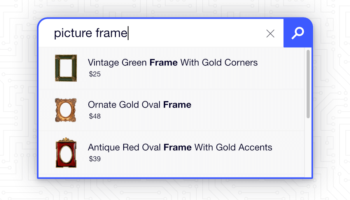Picture it: You’re at Google, searching for more fun facts about Justin Bieber (let’s face it, who isn’t?) and as you look at the search results that are presented to you, you move your mouse over the results as you read. So could the movements of your mouse determine which of those pages are going to get ranked higher in another search for the same information?
Maybe.
Ranking Factors
Late last year, Matt Cutts (head of Google’s Webspam team) mentioned that there are over 200 variables used in Google’s algorithm to determine how a web page ranks in the search results pages. We already know some of those variables, such as the quantity and quality of backlinks to the page, use of keywords in title tag and copy, and even how long it takes for the page to load. For obvious reasons, we’ll never know all the ranking factors and Google changes its algorithm on a daily basis (yes, daily). However, Google was just granted a patent on something new that could be incorporated into its algorithm: mouse movements.
Why Mouse Movements?
If you use your mouse to help keep you focused on the descriptions that you’re reading in the search engine results, your mouse may be hovering over some search results longer than others because you are more interested in that particular result. Perhaps you’re even getting an answer to your question in the that text description of the web page, so there’s no need to click on it even though it gave you an answer to your search (when is Justin Bieber’s birthday?!?!).
Part of the patent’s abstract, which was actually filed for in 2005 but just granted last week, states: “Sometimes, a user may review multiple informational items responsive to a search query, moving a pointer over or near each of the informational items that the user reviews. These various pointer activities can provide another way to evaluate the user’s feedback with respect to a particular informational item.” In a nutshell, the pointer (mouse) may be a tell-tale sign of which results the searcher values.
Is This Really a Good Ranking Signal?
When I first read about this, my reaction was “no way”. I don’t think that someone moving their mouse along the page as they read is a good measurement of the quality of the results, or the intent of the searcher. Google also indicates that “a typical user’s behavior is to move the mouse pointer (or any other pointing indicator) over or near a target informational item, keep the mouse pointer there for a period of time while the user reads the item’s information.” For me, this is not typical behavior. I keep my mouse to the side of the text and use my scroll wheel to move down the page as I read, and I’m sure that I’m not the only person who does this. Granted, Google may have this patent and not even want to use it anymore, or maybe they will incorporate it into a more broad consortium of user behavior data they’re collecting. There’s really no way of knowing how they plan to use this patent.
What do you think, is this a good indication of search result interest? Do you use your mouse to follow along as you read? I’d love to hear your thoughts!





